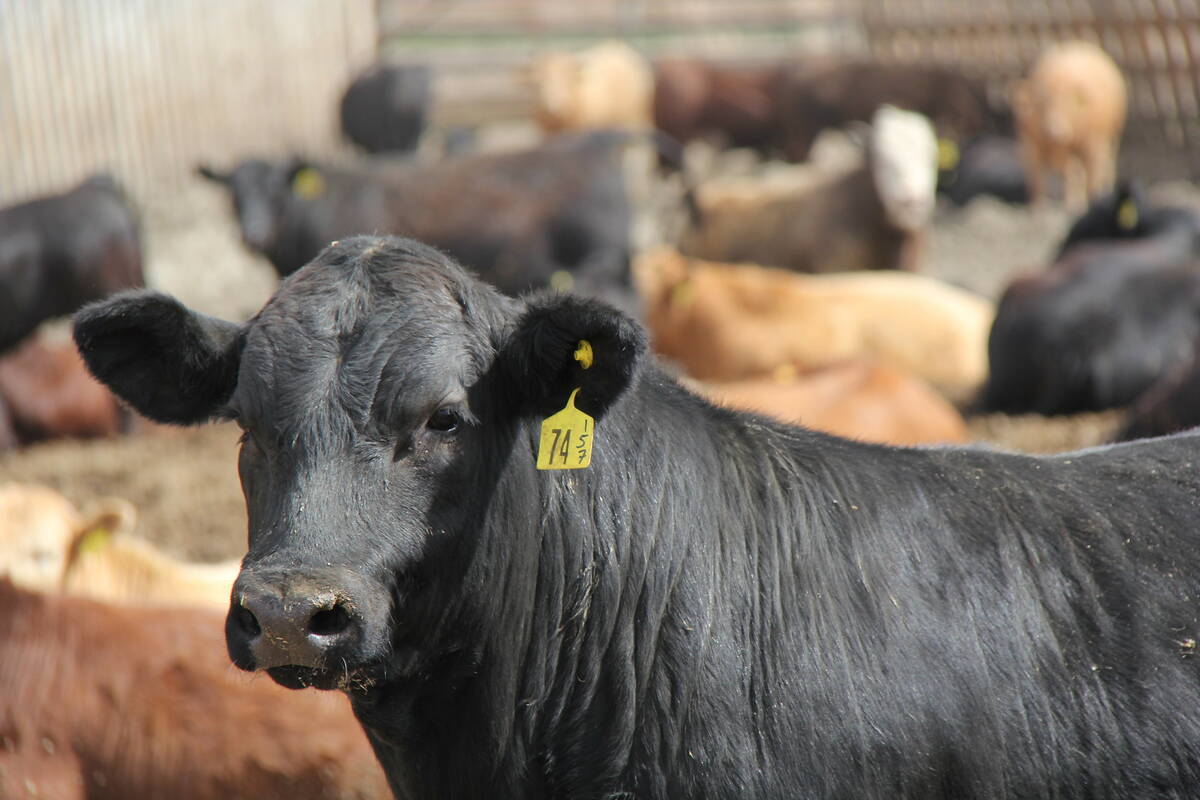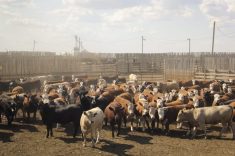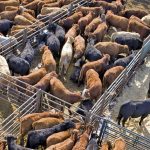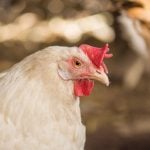Western Canadian feeder cattle prices were relatively unchanged for the week ending January 13, 2024, compared to the week ending December 16, 2023.
The market hasn’t missed a beat and started the year where it left in December. The only difference is there are larger supplies of yearlings coming on stream. The benchmark levels had backgrounded steers averaging 1,000 pounds trading from $280-$285/cwt with top bids rounding at $290/cwt. Steers averaging 850-pounds were averaging $300/cwt with top-notch larger groups peaking at $305.
Buying interest was stronger than expected, especially on pen-sized volumes. Smaller packages were quite variable and appeared to be discounted $5-$8 off average values. Major feedlot operators were taking the bulk of the volume. Calves took second stage with adverse weather hindering overall activity. Many auction barns will only start schedules next week so buyers lasered on the main sales. The frigid temperatures resulted in limited volumes. Ontario buying interest underpinned the market with hands stretching to northern Alberta.
Read Also

U.S. livestock: Feeder cattle hit record high on tight supply, strong cash prices
Chicago | Reuters – Chicago Mercantile Exchange feeder cattle futures scaled to a record high on Wednesday on strong cash…
South of Edmonton, a pen-sized group of 1,000-pound Charolais blended steers on light grain silage diet with medium flesh levels supposedly traded at $288. Northwest of Saskatoon, a larger group backgrounded mixed steers carrying medium flesh on light grain and silage diet weighing 935 pounds sold for $281. West of Saskatoon, a larger group of 935-pound backgrounded mixed heifers were valued at $267. North of Calgary, mixed steers on the card at 900 pounds with full health records on light grain and silage diet dropped apparently silenced the crowd at $285.
Near Edmonton, a larger package of backgrounded yearling steers weighing 850 pounds with full health records sold reportedly traded for $304. North of Calgary, a small package of Angus blended calves weaned just over 60 days with scale weight of 835 pounds on hay diet (no grain) with full health records were quoted at $299.
East of Saskatoon, Simmental blended steer calves averaging 715 pounds carrying butter of various levels supposedly notched the board at $335. In the same region, mixed larger frame heifers weighing 710 pounds sold for $290.
West of Saskatoon, Charolais based semi weaned steers averaging 600 pounds sold for $360. North of Calgary, a smaller group of Charolais based fully weaned heifers weighing 575 pounds with full health data traded for $329. In Eastern Saskatchewan, black steers weighing just over 500 pounds reached up to $405.
The calf market was hard to define. There appeared to be very strong demand on calves in the eastern prairie regions and limited volumes contributed to firmer tone. Friday’s USDA WASDE Report had 2024 fourth quarter beef production down 500 million pounds from the final quarter of 2023.
— Jerry Klassen is president and founder of Resilient Capital, specializing in proprietary commodity futures trading and market analysis. Jerry consults with feedlots on risk management and writes a weekly cattle market commentary. He can be reached at 204-504-8339 or via his website at ResilCapital.com.
















